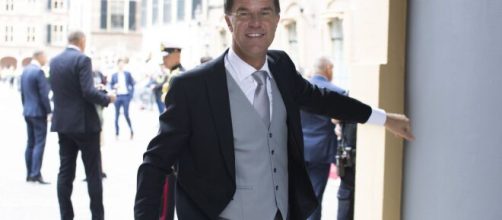Mark Rutte is one of the longest-continuously serving world leaders on the planet. He currently remains the prime minister of the Netherlands. His Cabinet has been with scandal.
The scandal in question centers on child welfare payments. Politico reports that Rutte has been 'relatively unscathed' by the scandal. But nonetheless, he and his Cabinet have opted to take responsibility.
All Cabinet members offer their resignations
Prime Minister Rutte and his whole Cabinet have formally submitted their resignations. As indicated by CBS, most of them are expected to remain in caretaker roles until the next election.
Scheduled in about two months' time.
The controversies arose surrounding wrongfully withheld payments for child welfare. Dutch tax officials accused thousands of parents of committing fraud who were later deemed innocent. The officials were then supposed to re-instate the payments, including back pay for the withheld money. Years later, still hadn't been compensated.
Rutte and his party had been in power at the time policies were implemented that led to this. However, the Cabinet minister in charge was from a different party that's no longer in the governing coalition. Lodewijk Asscher was deputy prime minister and social affairs and employment minister from 2012 to 2017. Along the way, he became the leader of the Labour Party, which is now in the opposition.
In response to the scandal, Asscher has stepped down as the party's leader.
Another minister had already resigned over it in 2019. That was Finance Minister Menno Snel. Snel is a member of the party Democrats 66, which does currently remain part of the governing coalition.
Evidence indicates that Dutch voters don't place the blame for the withheld payments on Rutte. Polling for the upcoming Parliamentary election shows his center-right party having a significant lead. At least two of the other parties in the coalition also seem poised to do well. Those being the Christian Democratic Appeal and the Christian Union. The only coalition partner seeing significant slumping in the polls is the Democrats 66.
If the polling is accurate, Mark Rutte will most likely remain prime minister after the election.
Rutte has been the prime minister of the Netherlands since 2010
Rutte was a Cabinet minister under Prime Minister Jan Peter Balkenende. He was social affairs and employment minister from 2002 to 2004. Followed by the minister of education, culture, and science from 2004 to 2006.
In 2006, Rutte was selected as the leader of the People's Party for Freedom and Democracy. That year, the party would have a disappointing showing in the Parliamentary election. It was a different story in 2010, however. That time, the party won the most seats and became the senior partner of a governing coalition. It also made Rutte the prime minister.
Rutte led his party to similar successes in 2012 and 2017. Among the events have been high-profile happenings among the Dutch Royal Family. Queen Beatrix chose to abdicate in 2013. Her first-born son then ascended to the throne, becoming King Willem-Alexander. That year also included the passing of Beatrix's second son, Prince Friso.


